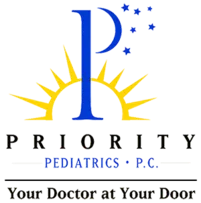Poison Prevention Tips from the American Academy of Pediatrics
To prevent poisoning in your home:
Most poisonings occur when parents or caregivers are home but not paying attention. The most dangerous potential poisons are medicines, cleaning products, liquid nicotine, antifreeze, windshield wiper fluid, pesticides, furniture polish, gasoline, kerosene and lamp oil. Be especially vigilant when there is a change in routine. Holidays, visits to and from grandparents' homes, and other special events may bring greater risk of poisoning if the usual safeguards are defeated or not in place.
-
Store medicine, cleaning and laundry products (including detergent packets), paints/varnishes and pesticides in their original packaging in locked cabinets or containers, out of sight and reach of children.
-
Safety latches that automatically lock when you close a cabinet door can help keep children away from dangerous products, but there is always a chance the device will malfunction or the child will defeat it. The safest place to store poisonous products is somewhere a child can't reach or see.
-
Purchase and keep all medicines in containers with safety caps and keep out of reach of children. Discard unused medication. Note that safety caps are designed to be child resistant but are not fully child proof.
-
Never refer to medicine as "candy" or another appealing name.
-
Check the label each time you give a child medicine to ensure proper dosage. For liquid medicines, use the dosing device that came with the medicine. Never use a kitchen spoon.
-
If you use an e-cigarette, keep the liquid nicotine refills locked up out of children's reach and only buy refills that use child resistant packaging. Ingestion or skin exposure with just a small amount of the liquid can be fatal to a child.
-
Never place poisonous products in food or drink containers.
-
Keep natural-gas-powered appliances, furnaces, and coal, wood or kerosene stoves in safe working order.
-
Maintain working smoke and carbon monoxide detectors.
-
Secure remote controls, key fobs, greeting cards, and musical children's books. These and other devices may contain small button-cell batteries that can cause injury if ingested.
-
Know the names of all plants in your home and yard. If you have young children or pets, consider removing those that are poisonous.
Poison Treatment Tips from the American Academy of Pediatrics
Different types and methods of poisoning require different, immediate treatment:
-
Swallowed poison – Take the item away from the child, and have the child spit out any remaining substance. Do not make your child vomit. Do not use syrup of ipecac.
-
Swallowed battery – If your child has swallowed a button-cell battery, seek treatment in a hospital emergency department immediately.
-
Skin poison -- Remove the child's clothes and rinse the skin with lukewarm water for at least 15 minutes.
-
Eye poison -- Flush the child's eye by holding the eyelid open and pouring a steady stream of room temperature water into the inner corner for 15 minutes.
Poisonous fumes – Take the child outside or into fresh air immediately. If the child has stopped breathing, start cardiopulmonary resuscitation (CPR) and do not stop until the child breathes on his or her own, or until someone can take over.
These tips are from the American Academy of Pediatrics.
©American Academy of Pediatrics, 2/18
